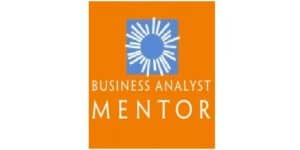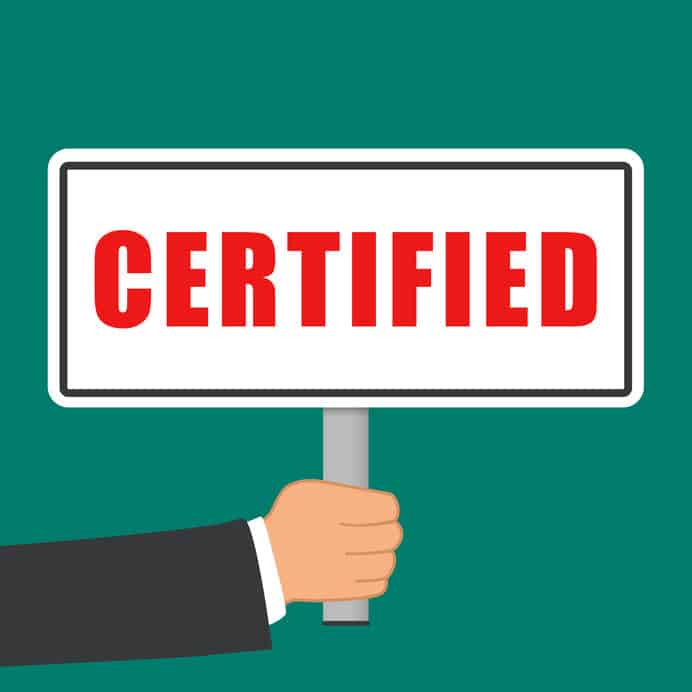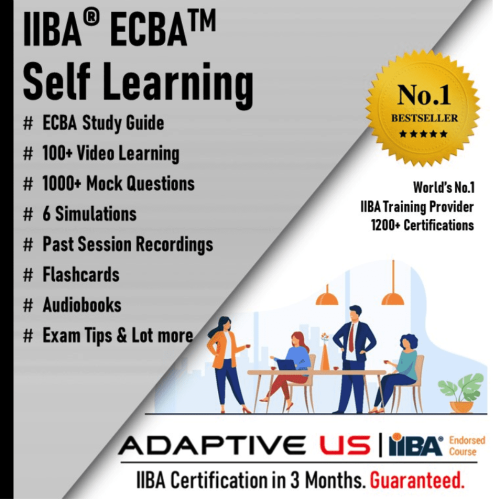It took me a few years before I needed to make a decision of whether CBAP vs BCS or some would say IIBA vs BCS?
At work I recently made a confession. Despite having a couple of years BA experience and a number of projects under my belt, I had never received formal training to do my job. I didn’t actually know for certain how I should be doing my job. Looking at the people around me made me feel guilty.
to do my job. I didn’t actually know for certain how I should be doing my job. Looking at the people around me made me feel guilty.
Dave in finance; two years of studying and still another year before he’s qualified. Ruth, just joined the sales team and immediately sent on a round of training courses to sharpen her negotiation skills. Me? Two years in, three projects delivered and not a whiff of training. I was making it up as I went along.
Time to get some qualifications . My immediate need was for some coaching on the basics; so far I felt like someone who had learnt to drive on a quiet road, fine for small simple journeys but I’d be ill-equipped for anything more challenging.
. My immediate need was for some coaching on the basics; so far I felt like someone who had learnt to drive on a quiet road, fine for small simple journeys but I’d be ill-equipped for anything more challenging.
Despite looking to start with the basics, I wanted this initial study to count towards something bigger if possible.
I soon discovered that there were a couple of decisions to make. CBAP vs ISEB / CBAP vs BCS? And whether to self-study or go on a training course?
CBAP vs ISEB / CBAP vs BCS
CBAP (aka the Certified Business Analysis Professional) is a qualification administered by the IIBA
is a qualification administered by the IIBA  and describes its recipients as “…the elite, senior members of the BA community”. Well, maybe one day, but for my immediate needs I was looking for something a little more basic.
and describes its recipients as “…the elite, senior members of the BA community”. Well, maybe one day, but for my immediate needs I was looking for something a little more basic.
A closer look at the eligibility requirements provided confirmation: a minimum of 7,500 hours of BA work experience. That’s about five years, and three more than I have. There is always the CCBA, a kind of ‘CBAP-lite’ , that requires a mere 3,750 hours of experience. This would have appealed had CCBA been a pre-requisite for CBAP; however as a stand-alone qualification that doesn’t count towards something bigger, I felt it wasn’t right for me.
, that requires a mere 3,750 hours of experience. This would have appealed had CCBA been a pre-requisite for CBAP; however as a stand-alone qualification that doesn’t count towards something bigger, I felt it wasn’t right for me.
So too ISEB, or the ISEB Diploma in Business Analysis to give it its full name. The diploma is administered by the BCS; to gain the qualification a candidate must pass a minimum of four written, modular exams plus an oral exam. The modular approach immediately appealed, as it allowed the possibility to gain a basic qualification that contributes to something bigger. Another big plus with modular qualifications are that they require less of an up-front commitment before becoming certified.
to give it its full name. The diploma is administered by the BCS; to gain the qualification a candidate must pass a minimum of four written, modular exams plus an oral exam. The modular approach immediately appealed, as it allowed the possibility to gain a basic qualification that contributes to something bigger. Another big plus with modular qualifications are that they require less of an up-front commitment before becoming certified.
A final consideration in the CBAP vs ISEB / CBAP vs BCS debate is how the respective qualifications are viewed by employers. Personally, I would never choose a qualification just because it was the one employers wanted; for me it’s more important to want to learn something. However, it is a factor worth understanding and I was fortunate enough to attend an IIBA event on the topic of recruitment just before making my decision.
Asking around, the consensus was that there was no ‘must-have’ qualification, though the ISEB Diploma did seem to edge it. An interesting suggestion is that ISEB is more widely-recognised in the UK, with CBAP being a more US-centric qualification.
Self-Study Or Training Course
Having decided that the ISEB Diploma was the one for me the next question was how to go about studying for BCS business analysis.
With the BCS book and some excellent learning resources I had found online I felt I had the means to do the BCS diploma in business analysis self study and seek to become a ISEB business analyst and gain an ISEB qualification.
and some excellent learning resources I had found online I felt I had the means to do the BCS diploma in business analysis self study and seek to become a ISEB business analyst and gain an ISEB qualification.
Sample papers can be found on the BCS website and I have no doubt that most people, with the requisite commitment and discipline, can comfortably pass the exams without the need for tutoring.
So in true BA style I did a quick bit of analysis: the only positives to self-study I could think of were cost and flexibility. So it seemed that the only reason for doing self-study was if I didn’t have a flexible, generous employer willing to pay for the course and allow me the time off work. Luckily I do, so the decision was made.
Now to find a training course . There is an overwhelming variety of training providers out there, and the process for sorting the good from the bad is not immediately obvious. When choosing a course I kept to the simple principle of looking for something that I actually wanted to study. I wanted to learn, not simply pass an exam, so any providers who seemed to provide an ‘exam-passing’ service were discounted.
. There is an overwhelming variety of training providers out there, and the process for sorting the good from the bad is not immediately obvious. When choosing a course I kept to the simple principle of looking for something that I actually wanted to study. I wanted to learn, not simply pass an exam, so any providers who seemed to provide an ‘exam-passing’ service were discounted.
Conversely, courses that included material not directly linked to an exam syllabus caught my attention. Class size was another important factor; anything above 10 would be a no-go. Finally, it’s worth finding out who will be running the course; an experienced tutor is a must. I wanted to learn from someone who had been there and done it.
Summary
Clearly the decision of what and how to study depends on personal circumstances. Indeed, over the next 12 months I’m expecting to shift to self-study as my employer’s training budgets tighten.
However, for now I’m content with putting my new-found knowledge to the test on my latest project before continuing on the path to certification .
.
I hope this article helps you in making your choice between CBAP vs BCS or some would say IIBA vs BCS.
In summary, if you are looking for business analyst certifications, you might have this question – which business analyst certification is right for me? A lot does depend in which part of the world your from – it is fair to say in the UK the BCS is extremely popular; and around the world the IIBA is more popular for business analysts seeking a business analyst certification.



